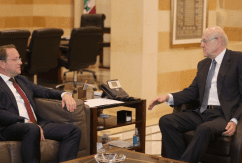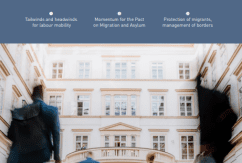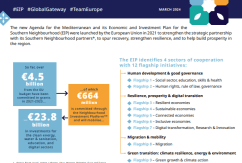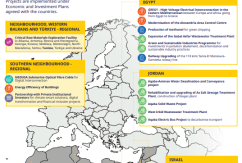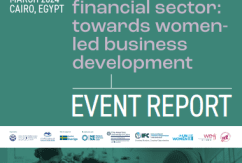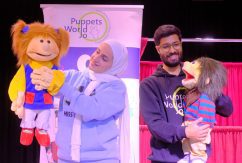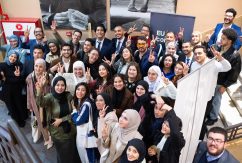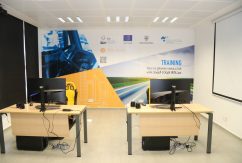Hijra wa Himaya: working in the best interests of child migrants in Morocco
Mamadou, Hamza, Anna, Myriam… They are just a few of the many children and young people from Sub-Saharan Africa who find themselves in extremely vulnerable situations in Morocco each year. After perilous journeys to escape their home countries, they find themselves in a country they know nothing, or next to nothing, about. Without legal status, they have next to no rights. Their dreams of a better tomorrow would have evaporated, making everyday life an ordeal, were it not for the “Hijra wa Himaya” programme, funded by the EU and delivered by UNICEF over a period of 3 years.
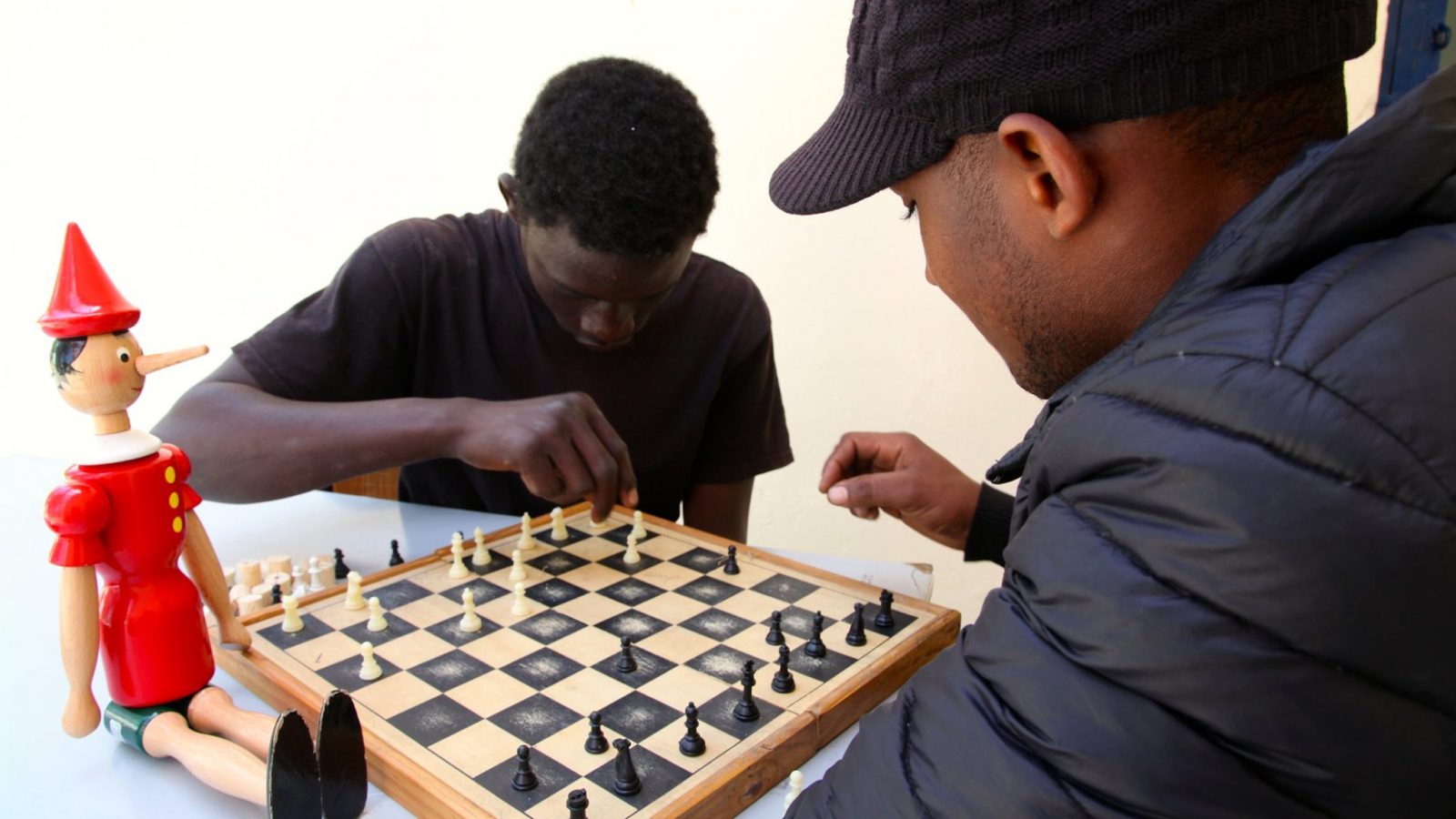

“I want to set up a cooperative. Like Mamadou and the other young people from the Organisation, I dream of a project that generates income so we can live in dignity. We are looking for stability and we want to feel safe. But above all, we need to get our residence permits”, says Hamza, his voice shy but tinged with hope. Aged 15 and originally from Cameroon, he is one of the children supported by CHABIBA, an organisation for people with special needs. Located in Oujda, in Eastern Morocco, the organisation has taken in around thirty young people in the last year. Working to support children and promote their social inclusion since the 1980s, CHABIBA is one of the organisations to have partnered with UNICEF under the “Hijra wa Himaya” project.
“I arrived in Morocco 16 months ago, after illegally crossing the border into Niger then Algeria with other child and adult migrants. Middlemen and traffickers helped us make the crossing”, says Hamza in a joyous mix of French and Moroccan Arabic. He says he left the country after his father died and his mother was unable to pay for his education. He dreamed of reaching Europe, but his plans for the future were scuppered by the strengthening of border controls between Morocco and Europe. Unable to continue his journey, he found himself in a vulnerable position, just like Mamadou (aged 17), who fled bloody clashes in the Hamdallaye neighbourhood of Conakry, Guinea.
The two young men spent their first few months begging on the streets of Oudja in an attempt to feed themselves and cover the 700 Dirham (65 Euro) rent they paid for the cramped room, with no ventilation or toilets, that they shared with six other migrants. In addition to this precarious position, they also suffered humiliation and discrimination on a daily basis. Worst of all, they lived in constant fear, fear the police would arrest them.
But a lucky star was watching over them. One year ago, Hajja Houria Aradh, president of CHABIBA, a charity committed to helping children in difficult circumstances, brought Hamza, Mamadou and around twenty other young people in from the streets of Oujda. She settled their debts with landlords and local shopkeepers so she could bring them to live at the headquarters of the organisation and participate in the “Hijra wa Himaya” programme.
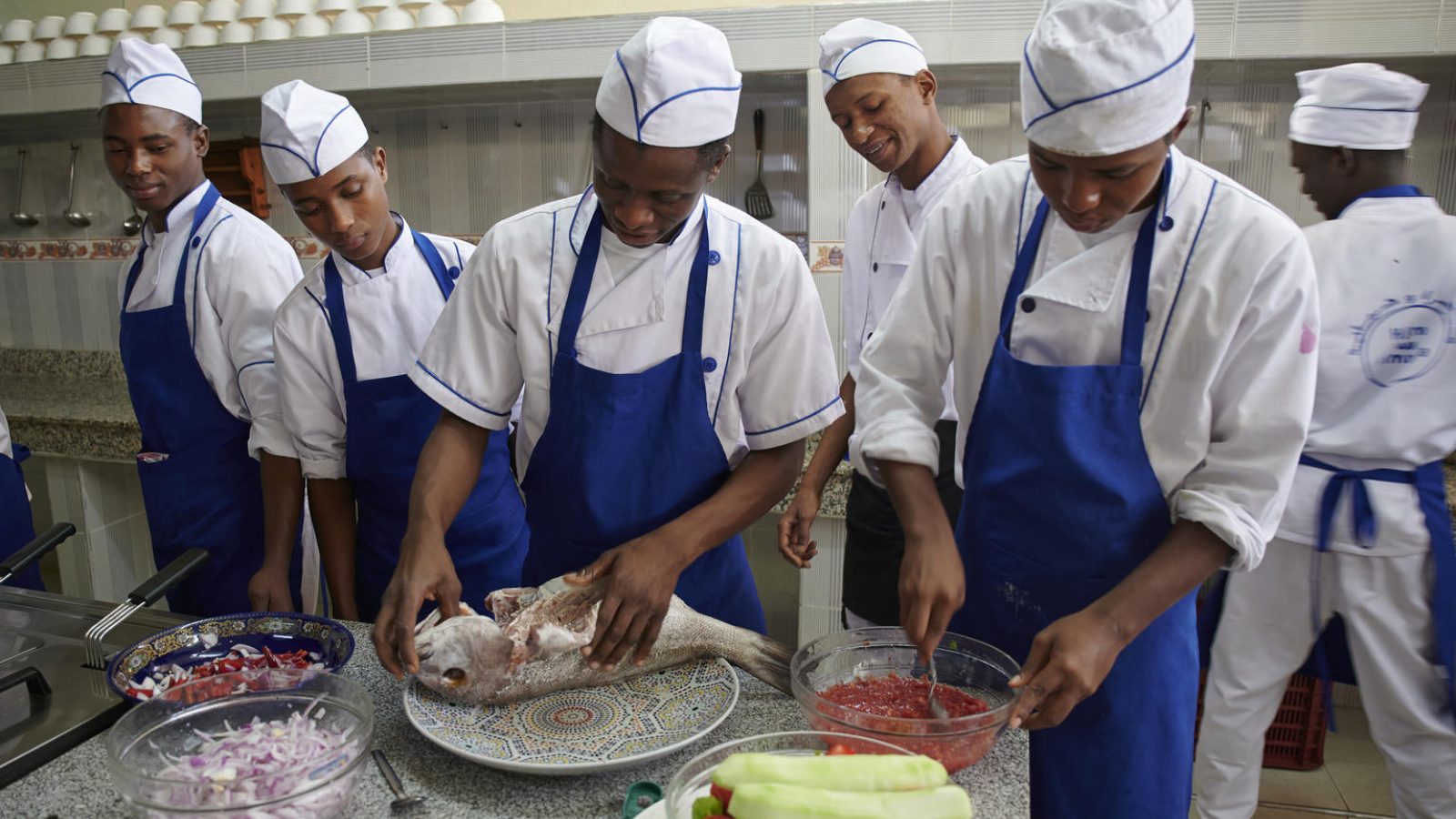

Mama Houria
Clearly moved, Hajja Houria reminisces: “When I met them for the first time, they were practically being held in detention by a woman who was demanding their parents transferred them money to pay off their debts. I had no choice but to settle the debts myself so I could bring them with me. It was impossible not to be moved by their plight. They were hungry. Their shoes were torn, their hair unkempt, their feet cracked. They were in a pitiful state. ”. With a melancholy air, she adds: “I don’t understand how mothers can let their children go out into the unknown. They have experienced great hardship. They have crossed forests and deserts. They have suffered the worst abuse and harassment. They have gone hungry for days and weeks. They have lost lots of weight. They have wanted for everything, but above all parental love”.
Since they came to the organisation a year ago, Hajja Houria has struggled day in, day out to offer them a decent life and humane conditions, so they can overcome the hardships they have experienced. “They have already come a long way and I am truly proud.” In unison, Hamza and Mamadou offer her words of thanks: “Thank you so much Mum! ” Mum – the way the young migrants address Hajja Houria is a testament to the care and kindness she has shown them.
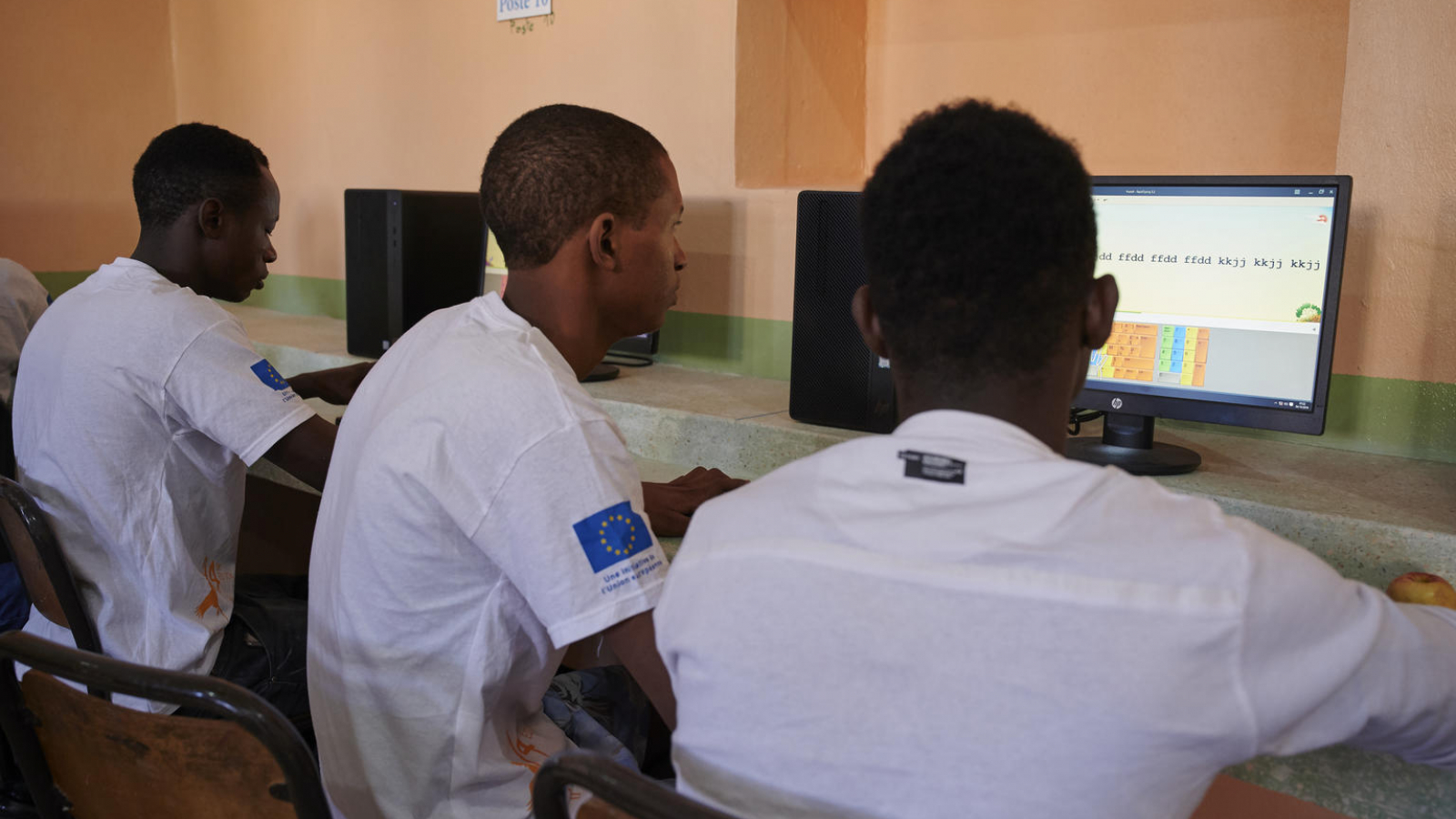

Life during the pandemic
Throughout the year, the organisation organises various activities and runs several programmes to support its beneficiaries. Mamadou tells us more: “I have learnt to prepare couscous and I have studied the basics of Moroccan cuisine. I’ve also learnt to cook a variety of dishes, including pizza, tacos and paninis. I also take IT, French and Moroccan Arabic classes”. The training and mentorship the organisation provides has given these young people new hope. With a glint in his eye, he says: “I want to have a bright future. I have big dreams”. While they now look to the future with a sense of optimism, thanks to the “Hijra wa Himaya” project, life for Mamadou, Hamza, and the others could have become a nightmare had they been forced to continue begging on the streets of Oujda during the Covid-19 pandemic. For three months, the city imposed a strict coronavirus lockdown. What would have become of these young people? Despite support and solidarity campaigns, the pandemic shook the lives of many migrants, and had strong repercussions on their daily existence. Overnight, the streets of Morocco emptied and nobody dared leave the house, thus depriving the migrants of a large proportion of their income, in particular the proceeds of begging.
Fortunately for Hamza et Mamadou, they did not meet this fate. With food, accommodation, and above all, guidance, the two young men are currently studying cookery and pastry, and cannot conceal their pride in donning their blue and white chef’s uniforms. They say they are grateful for their stay with the organisation, where they can watch television and regularly contact family and friends in their home countries via WhatsApp. Mamadou tells us: “I would like to get a legal residence permit and set up a company or a cooperative. I have learnt so much during my time at this organisation. I want to work to build my own life, but most of all I want to express my gratitude to the organisation and make myself useful to them in any way I can”. Meanwhile, Hamza says he wants to see families take better care of their children. He says: “Families are important and we need their protection. I want families to take better care of their children so they don’t have to go through what my friends and I have endured. The message I want to send to the authorities is that I need legal status so I can set up a cooperative with my friends. Morocco offers many opportunities and we still need support to keep moving forward”.
Hajja Houria has also carefully prepared the application files required to regularise the status of these two young men. She says: “All the documents have already been submitted to the police and the courts. I am hoping for a positive outcome so we can help these young people set up their cooperative. They are capable of doing great things for themselves and for Morocco, but first they need their papers.
During the last weeks of lockdown, Hajja Houria worked with the organisation’s team of staff and volunteers to train the young migrants on the process of founding and running a cooperative. CHABIBA has also signed training agreements with 32 local businesses to offer these young people work placements and apprenticeships, so they can gain the skills they need to find a job, in turn helping them integrate into the economic and social fabric of Morocco. “I will never abandon them. They are like my own children. I will only leave them to fend for themselves once I am confident about their future and certain that they are fully capable of taking care of themselves,” she concludes.
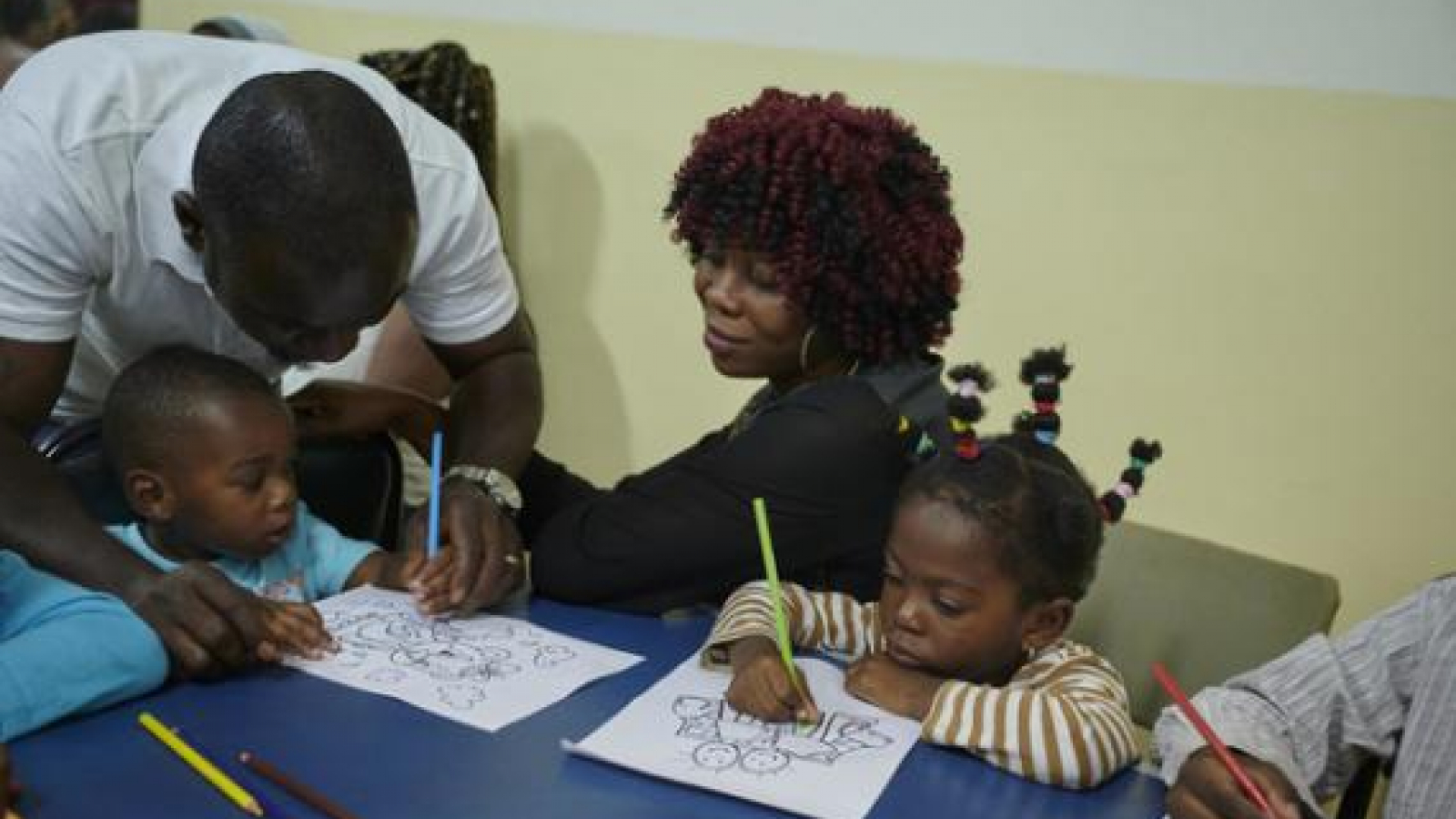

Restoring the will to live
As well as CHABIBA in North-East Morocco, the Hijra wa Himaya programme supports the work of Fondation Orient Occident in the city of Tangier, in the North of the country. This coastal town is the closest point in Africa to European Union territory (14 kms). From Tangier, you can actually glimpse Europe. Consequently, the city has therefore always attracted those who dream of reaching the continent. The Fondation Orient Occident is a not-for-profit organisation founded in the 1990s. Its aim is to provide young people from deprived neighbourhoods with social, educational and professional training, so they can overcome the difficulties they face. Partnered with UNICEF on the Hijra wa Himaya project, the work of the Foundation over the last two decades has focused on migrants and refugees.
Carmen Roméro, head of the Tangier office, cites the example of Thérèse and her 5 children, who arrived from the Ivory Coast a year ago. They left their country fleeing the ravages of war. The family spent several years in a refugee camp in Ghana, before arriving in Morocco in 2019. “If only you knew what we’ve been through. We wanted to move somewhere with better living conditions. We looked for a means of transport, but it wasn’t easy because there were so many of us. We put a little money aside so we could leave Ghana by bus. We spent almost four days crammed in behind some merchandise before we arrived in Mali. From there, we took another bus, which took 5 days to get us to Mauritania. Our feet were swollen because we were squatting for the whole journey”, reflects Thérèse, mournfully. “We spent 5 years and six months in Mauritania before crossing the Moroccan border. For this whole time, my 5 children and I worked backbreaking jobs to save the money for the crossing. I can’t find the words to describe the hardship I endured before arriving here on 24 February 2019,” she adds.
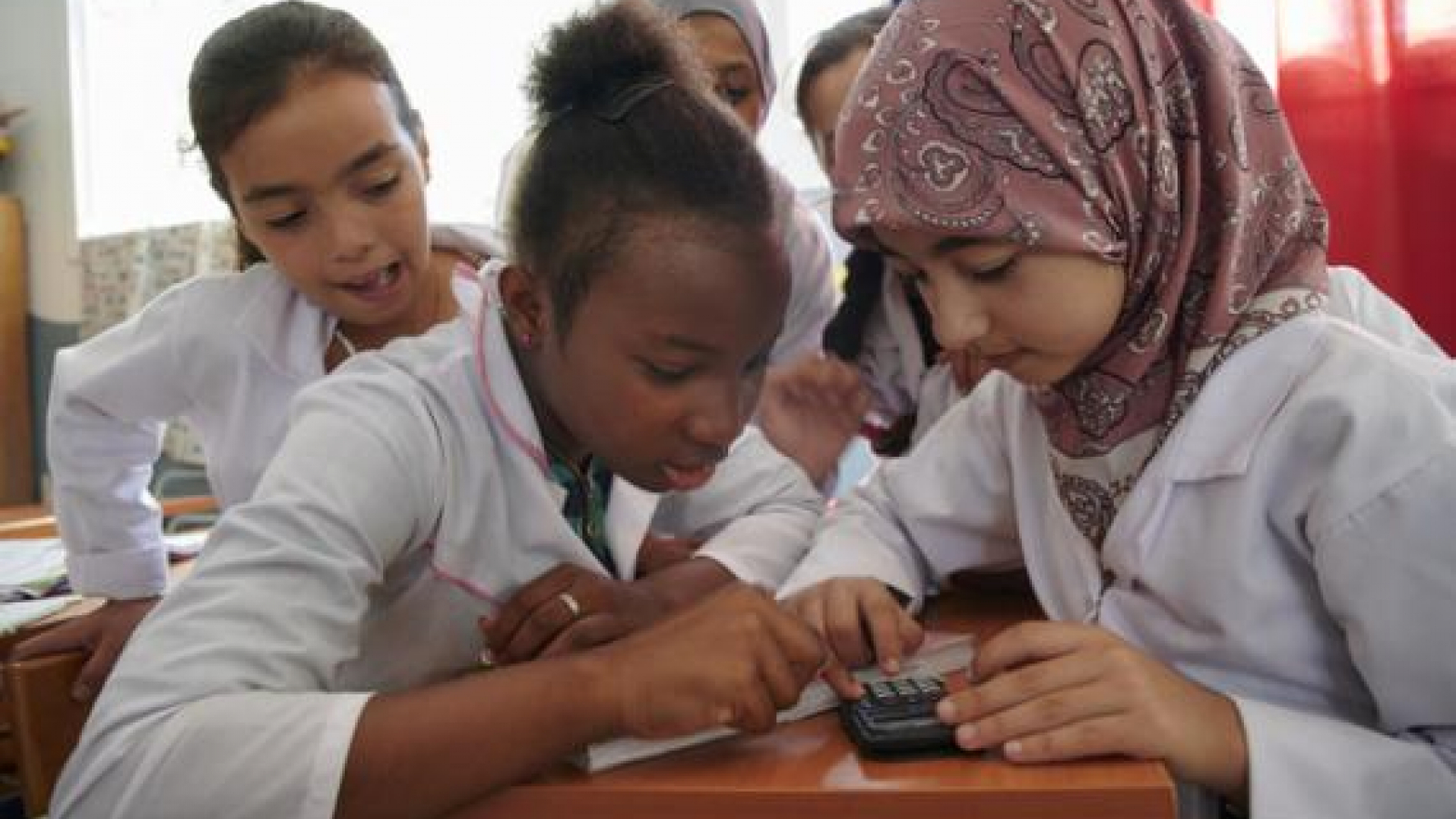

Having arrived in Tangier with her children and benefitted from the support of the Fondation Orient Occident, this mother is no longer obsessed with reaching Europe. She seems very happy and relatively positive about the future. She says she wants to find a decent job that allows her to live in dignity and send her children to school to build a better future for themselves. Three of Thérèse’s five children are still under eighteen, including Anna and Myriam. The two girls are studying at special informal education establishments, known in Morocco as “Second chance schools”. In the last academic year, these state-run schools reached out to almost 67,000 children and teenagers, in partnership with 499 organisations and no less than 1,400 teachers. The programme enables children and young people who have dropped out of school, including child migrants, to return to the classroom.
On top of this, Thérèse’s two daughters are receiving training in a range of subjects, from IT to hairdressing and beauty, at the Fondation Orient Occident migrant welcome centre. Bright-eyed with a shy smile, Myriam tells us: “I read my books and I’m trying to learn classical and colloquial Arabic. I like almost everything about school. Thanks to the organisation, I finally have friends. I am very grateful for all the support we’ve received during lockdown.” Myriam dreams of finishing school and becoming a surgeon, but her younger sister Anna is still not sure what she wants to do in the future, “I could also become a doctor, as there are many sick people I could treat and save”.
“If Anna and Myriam appear optimistic and capable of enjoying themselves, that is thanks to the psychological rehabilitation they have undergone to help overcome the after-effects of the trauma they have suffered”, explains Khaoula Charkaoui, a psychologist at Fondation Orient Occident, responsible for supporting beneficiaries of the Hijra wa Himaya programme in Tangier. She adds that these children experience a deep sense of loneliness: “They have travelled great distances and experienced traumatic events. They have suffered or witnessed sexual, physical and psychological violence. They have lost loved ones and travel companions. Such trials are hard to bear, especially since the majority have been separated from their family and their normal points of reference, and find themselves in a country completely different to their own”.
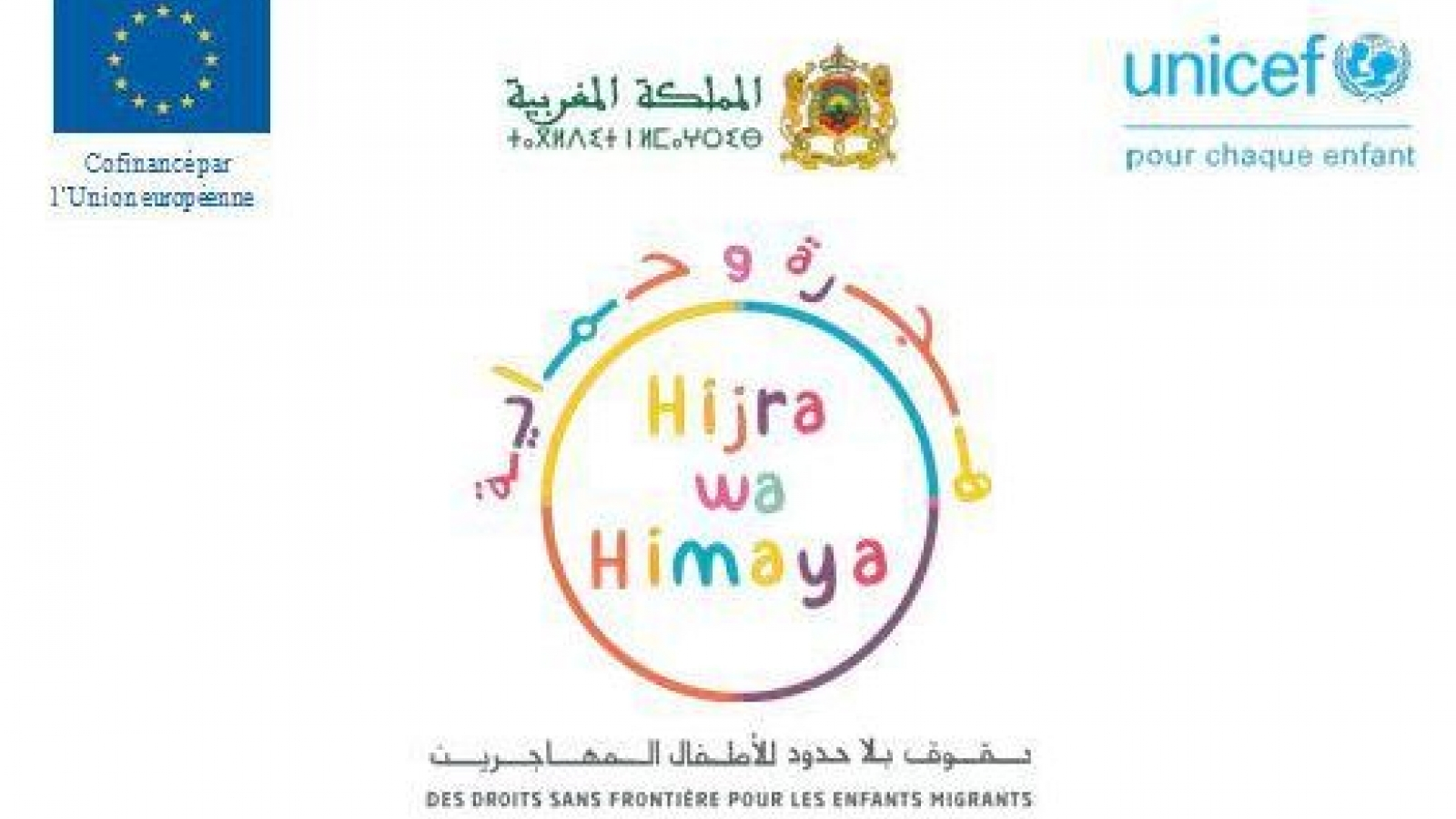

The best interests of child migrants
Giovanna Barberis, UNICEF representative in Morocco, explains that the “Hijra wa Himaya” project, financed by the European Union, covers several key areas related to child migrants: legal and administrative support, fair access to education, healthcare and social services, and accommodation in centres until they reach adulthood. She says: “The project, which currently supports 2000 child migrants, has been designed and implemented in a way that prioritises the best interests of the children and holistically meets their needs in collaboration with our partner institutions and civil society. All the measures taken and decisions made under the Hijra wa Himaya are guided by this aim. During the pandemic more than ever, this integrated and non-discriminatory support for young migrants has proved effective and given good results.”
The “Hijra wa Himaya” project, which runs from March 2018 to March 2021, also includes initiatives to develop the skills of social workers, healthcare professionals, teachers, security agents, professionals working in the justice system, and civil society actors. By doing so, the project aims to ensure that the best interests of migrant children are universally respected.


Better governance of migration
Claudia WIEDEY, European Union ambassador in Morocco, states that by providing 1.8 million Euros in funding to the project, of its overall budget of 2.4 million Euros, the EU aims not only to protect the best interests of children, but also to help Morocco establish better governance of migration in order to shoulder its new responsibilities as a destination country for many migrants from Sub-Saharan Africa, and in particular child migrants, the most at-risk group. She says: “The European Union’s support for Morocco is part of a wider effort to integrate migration policy into a legislative and operational framework based on human rights. This support reflects our responsible stance on the issue of migration and asylum, which must be managed progressively, by adopting an integrated approach and engaging in dialogue with African countries such as Morocco, and through national immigration and asylum strategies with special provisions for child migrants”.
Child migrants currently account for over 10% of the total number of migrants worldwide, which reached almost 272 million in 2019. In Morocco, this percentage is 8.73% according to data provided by the National Human Rights Council, based on statistics on the regularisation of foreign persons illegally resident in Morocco.

